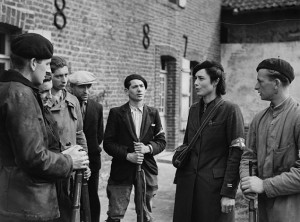It’s common to associate Augustine’s Two Cities with Luther’s Two Kingdoms. But they are really quite different. In The City of God, Augustine defines the two in terms of two different loves: The City of God has to do with the love of God; the City of Man has to do with love of self.
Thus the two cities are in opposition to each other. This is a scheme for dualism, for ascetic rejection of the world, giving rise to monasticism.
Luther’s Two Kingdoms is a paradigm for embracing the world. The Kingdom of the Left, for Luther, is about neither love of God nor love of self, but love of neighbor.
To be sure, Augustine’s distinction points to a reality, the conflict Christians have in living among non-Christians. So his work has much to offer. Luther recognizes the Christian’s conflict with the non-believing world, the realm of worldliness.
It is sometimes said that we should speak of Luther’s theology of the Three Kingdoms. Satan too has a kingdom. While Satan is defeated in the spiritual kingdom, he continues to wreak havoc in the Kingdom of the Left, undermining God’s orders (the household, the church, and the state) and tempting Christians in their vocations.
Christians live out their faith in the temporal, physical Kingdom, where our earthly vocations place us. This inevitably involves temptations, trials, tribulations, and other battles against Satan. Because of this conflict, we are forced to depend more and more on God, have recourse to the means of grace, and thus grow in our faith.
But God uses His physical creation and our own vocations to bring us to Himself. The created order is “very good” and not to be rejected.
At the Two Kingdoms conference I have been talking about, the Rev. Dr. Eric Phillips spoke on “Two Cities, Two Kingdoms: Augustine and Luther on Church and State.” He shows the differences, but also the influence of Augustine on Luther.
He explores one aspect of the doctrine of the Two Kingdoms: the relationship between church and state. Some people treat that relationship as if it were the whole of the doctrine, which is really about the entire created order.
So obviously, if the state is friendly to church, there will be one relationship, but if it is hostile, there will be another. Eric explores the different political situations the church found itself in, from the Roman persecution through Constantine through medieval “Christendom.”
[youtube https://www.youtube.com/watch?v=LTRQfxTTi7M?feature=oembed&w=500&h=281]



